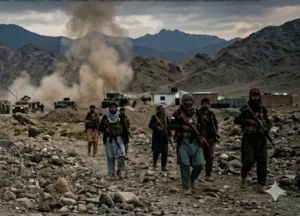On Tuesday night, Yoon Suk Yeol, South Korea’s president, declared martial law on late-night TV broadcasts using “anti-state forces” as justification. This unexpected announcement marked the first use of martial law in South Korea since 1979, causing immediate public outrage. Many saw this decision as an attempt to regain control amid falling approval ratings and increasing opposition pressure.
For six hours, the country’s capital was gripped with chaos. Thousands of protestors gathered outside the parliament shouting, “No martial law!” while opposition lawmakers worked to overturn the decision swiftly. Yoon’s government also imposed sweeping measures, including censorship of the press and bans on political activity, heightening public outrage.
The declaration faced immediate backlash. South Korea’s 1987 constitution grants the president the authority to declare martial law in case of a severe national crisis. Still, it also states that the government must lift it if most parliament demands it.
Yoon’s vague claims that the opposition sympathized with North Korea with no supporting evidence were not enough to justify such drastic measures, leaving many questioning his true motives. Even the members of Yoon’s conservative People Power Party voiced concerns, calling the move reckless.
Protests and political activities were restricted under the temporary imposition of martial law, which gave the military control over civil rights. When armed troops were sent to the national assembly, staff members used fire extinguishers to block them, resulting in chaos. Protestors and lawmakers alike disobeyed the constrictions to challenge Yoon’s order in spite of the military’s attempts to suppress them.
By the early hours of wednesday, opposition lawmakers convened an emergency session at the National Assembly. With 190 votes, they struck down the martial law order, bringing an end to the chaos. As the decision was announced, protesters erupted in cheers outside the heavily guarded parliament. Hours later, Yoon appeared at a cabinet meeting, but the damage to his credibility was undeniable.
This incident further highlighted Yoon’s challenges since taking office in 2022. His presidency has been marked by scandals involving his inner circle and growing tensions with an opposition-dominated parliament. Recent efforts to slash his government budget bill and impeach cabinet members have only added to his struggles.
Now, political analysts warn that Yoon’s presidency may be nearing its breaking point. Calls for his impeachment are gaining momentum, with opposition lawmakers reportedly considering action soon. After South Korea’s president declared martial law, nations’ democratic institutions grapple with the fallout of this crisis. While martial law was lifted without violence, the mere declaration left a mark on the government.









